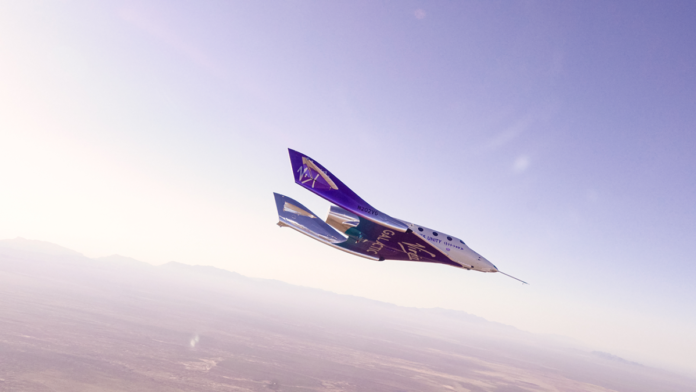Virgin Galactic is gearing up for a big mission on Thursday (May 25) — its final test flight to suborbital space before starting commercial service.
Virgin Galactic will send six people toward suborbital space no earlier than 10 a.m. EDT (8 a.m. MDT or 1300 GMT) from Spaceport America in New Mexico. While the event will not be livestreamed, you will likely be able to follow along live on Virgin Galactic’s Twitter feed.
The flight will include eight individuals, six of whom will fly on the space plane VSS Unity and two who will pilot the carrier aircraft, VMS Eve. Like past spaceflights, Eve will take off with Unity under its wings, the release the spacecraft at roughly 50,000 feet (15,000 meters) in altitude. Unity will light up its rocket motor and fly higher than 50 miles (80 kilometers) — high enough, by some definitions, to reach space.
Related: Meet the 8 people flying on Virgin Galactic’s 5th spaceflight on Thursday
The flight, called Unity 25, will be the fifth time that Virgin Galactic has flown to space. The company last made such a journey on July 11, 2021, with billionaire Virgin Group founder Richard Branson as one of the passengers. The last two years have been spent upgrading and testing Unity and Eve in preparation for service.
Virgin Galactic has said that, should Unity 25 go to plan, it will open up commercial flights for passengers. The most recent prices for tickets saw them sell for $450,000 apiece, with hundreds of people in line for a flight.
All eight individuals aboard Unity 25 are Virgin Galactic employees. Veteran Virgin Galactic pilot Mike Masucci will command VSS Unity, and former NASA astronaut C.J. Sturckow will be its pilot. Jameel Janjua will command VMS Eve, with Nicola Pecile as pilot.
The four crew members flying Unity’s cabin are Beth Moses (chief astronaut instructor, who has been to space twice already), astronaut instructor Luke Mays, mission specialist Christopher Huie and mission specialist Jamila Gilbert. This will be the first spaceflight for Mays, Huie and Gilbert.
The main competing space tourism company to Virgin Galactic, Blue Origin, has also suspended flights for a while. Blue Origin’s New Shepard system suffered a failure during an uncrewed launch in September 2022, but the fix to address the root cause is apparently still underway. The company has said it may resume flights later this year. Blue Origin, which has not released per-seat pricing, has flown people to space on New Shepard six times to date.

